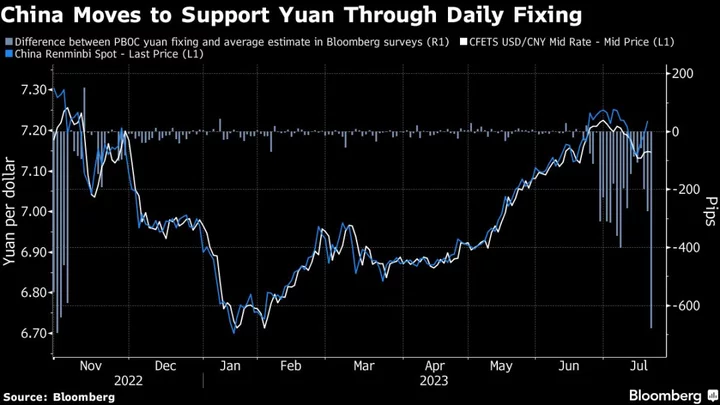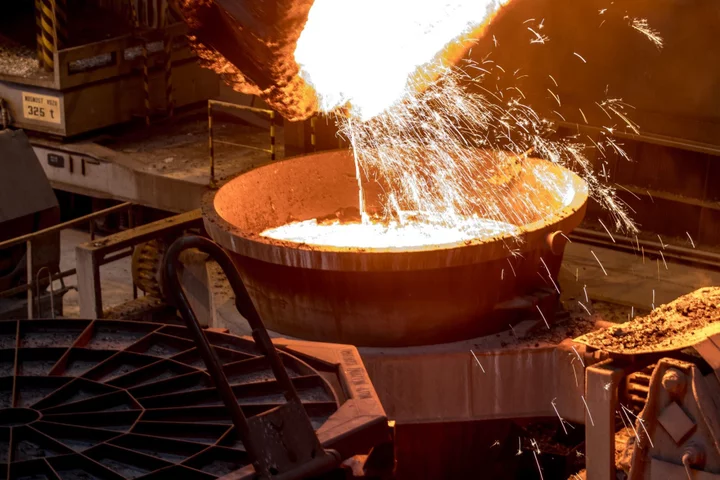The yuan surged after China stepped up its support for the managed currency with a stronger-than-expected reference rate and a change to its capital curbs to lure inflows.
The People’s Bank of China set its daily fixing at 7.1466 per dollar, 680 pips stronger than the average estimate in a Bloomberg survey and the largest bias since November. It also adjusted rules to allow companies to borrow more from overseas, enabling more foreign capital inflows in the nation.
The offshore yuan surged as much as 0.7% to 7.1802 following the fix, while the onshore rate jumped by the same magnitude. The PBOC’s reference rate limits the onshore currency’s moves by 2% on either side.
The steps to support the currency comes amid a ramp up in rhetoric from Beijing to bolster business confidence as economic growth wanes. China’s Communist Party and government issued a joint pledge to improve conditions for private businesses, in a statement Wednesday.
The yuan, which slumped more than 5% against the greenback last quarter as one of Asia’s worst performers, is under pressure from growth concerns as well as China’s widening monetary policy divergence with the US. The PBOC has been signaling its discomfort with the weakness by setting the fixing at stronger-than-expected levels since late June.
“The rise in dollar-yuan yesterday was worrisome for the PBOC, so it had to act more forcefully today,” said Alvin Tan, head of Asia FX strategy at RBC Capital Markets. “Direct intervention by authorities is still unlikely, but there are certainly other measures that could be done, such as a cut to the FX holdings reserve ratio of banks. We can expect more of these sizable fix deviations in the near future.”
The PBOC also adjusted its rules to allow companies to borrow more from overseas, in effect enabling more foreign capital inflows. It raised the so-called macro-prudential parameter for companies and financial institutions cross-border funding to 1.5 from 1.25, according to a statement from the central bank.
China made a similar move in October to aid the yuan, when it was plunging to fresh 2008 lows against the dollar.
(Adds context.)









